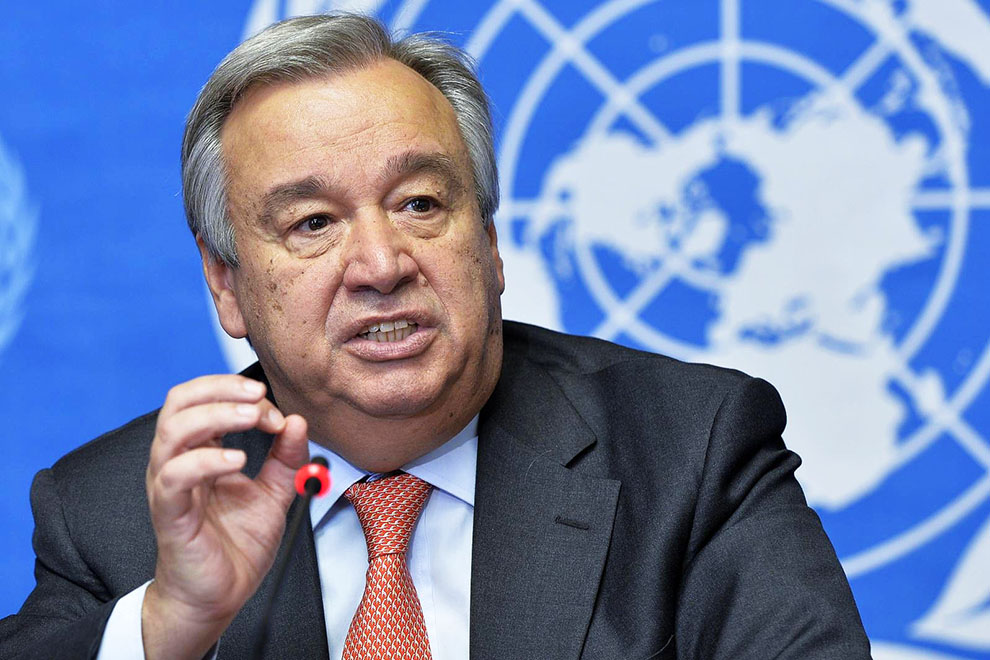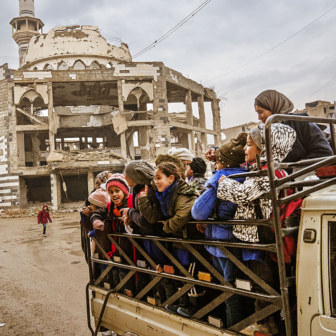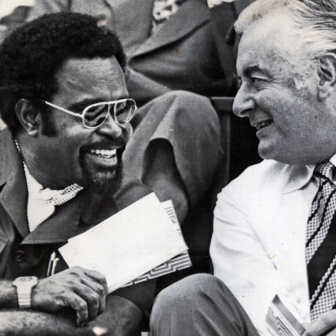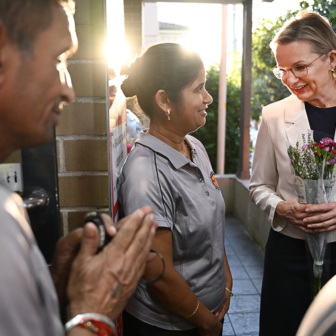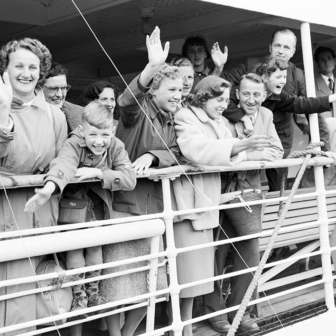Unless something goes dramatically awry, the UN General Assembly will shortly swear in António Guterres – former Portuguese prime minister and former head of the UN Refugee Agency, UNHCR – as the ninth secretary-general of the United Nations. Last Friday, at the end of an unprecedentedly open and competitive process, Guterres was confirmed almost unanimously (thirteen in favour, two abstentions and no naysayers) as the Security Council’s recommended candidate. He was chosen from a solid field of thirteen nominees, notable not least for the significant number of women in contention. The decision has attracted largely positive comment, even if many have expressed justified disappointment that the real possibility of appointing the first female secretary-general was, in the event, lost.
As UNHCR’s assistant high commissioner (protection) from 2005 to 2013, I was one of the “troika” with whom António Guterres worked closely. For ten years, with energy, integrity and a belief in accountability to beneficiaries, he skilfully steered the organisation through a dramatically worsening displacement environment, recurring budget crises and the quicksand of UN politics.
Guterres came to that position as a socialist politician who commanded widespread respect among his political peers, but he was untested in the intricacies of the humanitarian world. This inexperience might have proved a liability, were it not for other attributes he brought to the job, among them his broad historical and geographical knowledge and a prodigious appetite for facts and figures. It helped that he was a capable and winning communicator, interchangeably in four languages, a skill that certainly contributed to his record as one of UNHCR’s most successful fundraisers. That he had a tendency to micro-manage was perhaps the main concern expressed internally. Decisions did not back up, though; they were taken.
The SG-to-be is a consummate politician. Some people feared early on that this might become a liability for an organisation, UNHCR, mandated to stand up for the rights of individuals against government malfeasance. At the best of times, politicians will be challenged to ensure that their policies remain coherent and immune to political pressures and shifting currents. They can also be somewhat conflict-averse. The flipside, of course, is that top UN positions are quintessentially political functions.
Guterres’s political credentials meant he was able to deal convincingly with the governments on whose financial and political support UNHCR relies, in a language they understood. He proved himself adept at talking with, rather than at, governments, at moving on from disagreements, at building positive outcomes out of discordant beginnings, and overall at convincing funders to continue to support refugee assistance and protection even if their inclinations might have led them elsewhere. In all of this, he did a service to a chronically under-resourced organisation, fully dependent on voluntary contributions and trying to implement its mandate in a world of growing asylum fatigue and contracting humanitarian efforts.
Will these qualities carry him to similar success as the secretary-general of an institution currently underrated and underutilised, and not always well served by its member states?
The United Nations is now seventy years old. It was conceived in the 1940s, together with the Bretton Woods institutions (the International Monetary Fund, the World Bank, and the General Agreement on Tariffs and Trade, which became the World Trade Organization), in the shadow of the Second World War. Securing lasting peace and economic recovery were central preoccupations, nationally and ly. The extent to which the UN has been successful in its pursuit of these goals has been the subject of endless review and criticism. How might the new SG turn this around?
The UN’s critics love to dwell, with some justice, on the inefficiencies and bureaucratic hurdles that beset its main intergovernmental bodies, the General Assembly and the Security Council. Its bewildering structure is spread over many headquarters and field offices, and an abundance of institutions, organisations, intergovernmental councils and assemblies, and secretariat offices. It labours under layers of rules, instructions and administrative policies, some written but many not, and a plethora of meetings, arrangements, languages, initials, titles, appointments and contracts.
Guterres came into UNHCR vowing to pursue stability and avoid the mistake of initiating change before he had consolidated his authority. This was well received in an organisation that had seen its fair share of costly, unsettling and ultimately inconsequential reconfigurations. He nevertheless did embark, after a grace period, on an important restructuring that was ultimately credited with having dramatically pared back headquarters, located staff closer to the point of need, and diverted much-needed dollars from administration to operations. This augurs well for what lies ahead for him in New York. That said, transforming the United Nations from within includes improving how its agencies cooperate, a process already in train but one with which UNHCR (and Guterres at its helm) has had problems. These he will have to work carefully around.
Whether the UN will ever get the funds and qualified people necessary for its work is a perennial question. In his troika meetings, Guterres used to bemoan the necessity of annual visits to each and every donor government ambassador in Geneva, hat in hand so to speak, but he accepted these visits as his personal responsibility, going beyond his regular encounters on the diplomatic circuit, and they paid dividends. Under his leadership, too, a wariness of private sector partnerships was replaced by whole-hearted embrace, which found its reflection in a major overhaul of UNHCR’s external relations arrangements and staff, and again a healthier funding situation.
If Guterres has shown himself to be adept when it comes to funding, this may prove but one of the challenges he will have to face early to in ensure the relevance and value of the UN and its institutions in an era of major geopolitical and social change. Here, he will not be starting from scratch. Steps already taken include the greater democratisation of the SG selection process, which brought him to his new position. But the long-advocated, more sweeping reforms of the Security Council, designed to rid it of the increasingly outdated vestiges of the postwar order, have yet to be realised. In particular, the veto power of its permanent five members is an historical anachronism that increasingly undermines the legitimacy of the organisation.
More generally, the Security Council’s composition is sorely out of kilter with modern geopolitical realities. The Asia-Pacific region, for example, accounts for over half the world's population but has only 20 per cent of Security Council seats. Reform of the Council’s processes and composition remains a highly divisive issue, and will call for political skills of a high order. It will help that Guterres has those skills as he works with governments over the coming period to bring about the necessary changes.
Another constituency, “we the peoples,” will also need to be cultivated with care, understanding and empathy at an early point. A different culture of accountability – one that values its individual beneficiaries as much as its client governments – is called for. This is an era in which the gap between citizens and their governments is growing progressively wider. There is a rejection of elites. The power of civil society to effect change in its own right – ahead of, no longer behind, national leaders – is seemingly unstoppable. The ascendancy of revolutionary disruptive technology and ubiquitous social media has seen to this. The UN needs to connect better with people if it is to deal with the current retreat from globalisation and a broadening consensus against mass migration. Here, empathy will have the edge over political know-how. Guterres introduced into the standard UNHCR lexicon the phrase “the people we serve.” He starts off on the right foot.
Guterres will also have an edge in overseeing the programs and operations delivered through the UN, which do connect with and make a real difference in the people’s everyday lives. It is a mistake to understand the UN solely by reference to its intergovernmental processes and bodies. The many different organisations and specialised agencies it houses feed and vaccinate millions of people, respond with billions of dollars to natural and human-induced disasters, and provide shelter, support and protection to vulnerable women, children and men through targeted programs on every continent. The sustainable development goals set by the UN and pursued through its organisations are a much-hailed successor program to the Millennium Development Goals, commended as the largest, most sustained and concrete global poverty reduction effort of all time.
UNHCR, with its budget of billions and its reach in the 120-plus countries where it protects and assists refugees, internally displaced persons, asylum seekers and stateless people, is a sterling example of the critical value of the UN’s humanitarian work. The exodus of millions of Syrians to neighbouring states and beyond is an indication, if one is needed, of the scale of the challenge that mass displacement can represent. The problem is regrettably much bigger than Syria, though. Some sixty-five million people are displaced at the moment. Around twenty-one million of them are refugees, 85 per cent of whom live in developing countries with human rights and governance issues of their own. Fewer than one in forty refugee situations are resolved within three years and many continue for a decade or more, with donor funds progressively drying up and millions of people left in sub-standard living conditions with no prospects. The new SG’s familiarity with the global displacement crisis is arguably his biggest plus.
The UN is often criticised for making insufficient progress in delivering on its charter responsibilities – promoting peace, security and respect for human rights, and encouraging economic development. The theory of the charter is one of peaceful states and fulfilled peoples existing in an ever-better world fostered and furthered through the UN. Of course, the reality is very different. Critics can point to many examples, from the unresolved Israeli–Palestinian conflict to Syria, from the perceived under-response to the Ebola crisis to relative impotence on climate change, not to mention the growing disparities in wealth and resources between countries and among peoples. There is a high probability that the displacement crisis will increasingly be affected by environmental factors such as population growth, declining resources and inequality of access to them, ecological damage and climate-induced disasters. Most recently, the critics were lukewarm about the UN summit convened last month in New York to chart a new course on refugees and migration but dismissed by some as rhetoric-heavy and substance-short.
It is too easy to lay these failures at the door of the UN. The organisation is ultimately dependent on the will of governments to facilitate its work. More often than not this means that its activities collide with politics, security, national interests, donor priorities and capacities. Having headed a UN organisation for which this is an ever-present daily reality, the new SG knows the problems better than many. He is well prepared, even if this does not diminish the sheer scale of the tasks ahead of him. •
